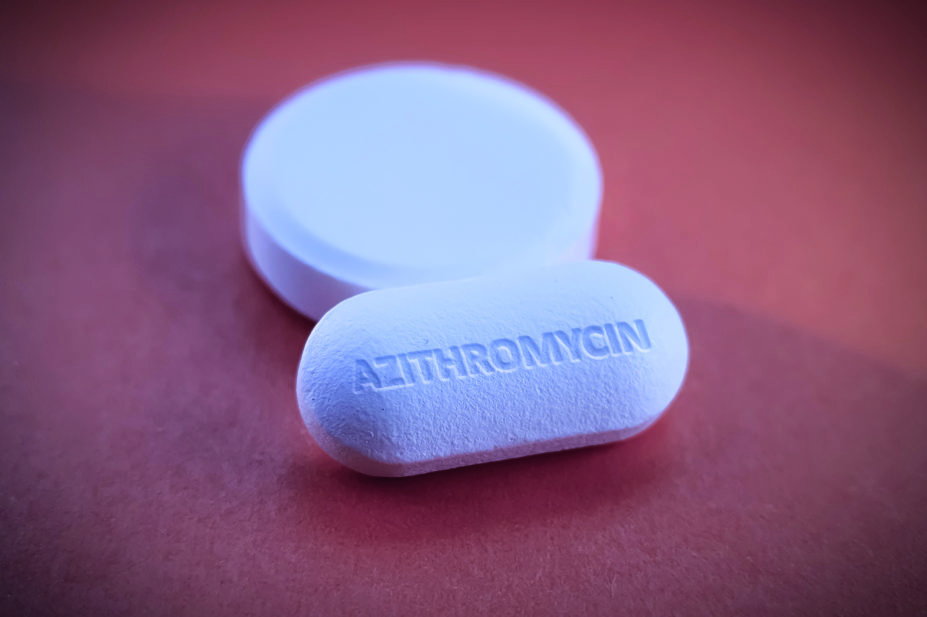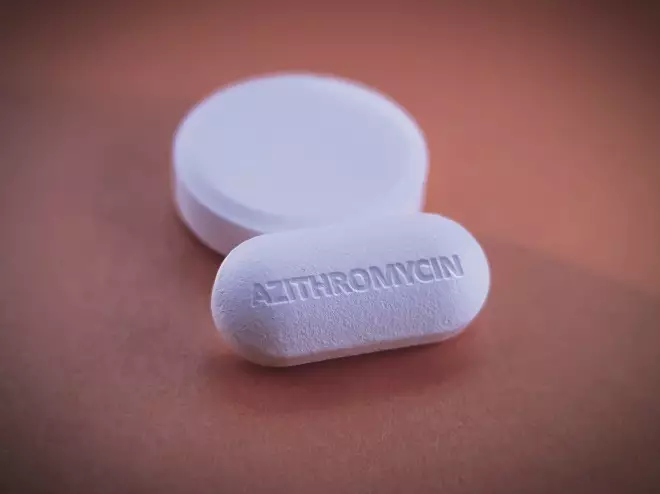
Shutterstock.com
Open access article
The Royal Pharmaceutical Society has made this article free to access in order to help healthcare professionals stay informed about an issue of national importance.
To learn more about coronavirus, please visit: https://www.rpharms.com/resources/pharmacy-guides/wuhan-novel-coronavirus

Source: Shutterstock.com
Azithromycin is an antibiotic known for its anti-inflammatory properties
The antibiotic azithromycin has no meaningful clinical benefit for patients who are hospitalised with severe COVID-19, a preliminary analysis of data from the Randomised Evaluation of COVID-19 Therapy (RECOVERY) trial has found.
Azithromycin is known for its anti-inflammatory properties and because inflammation, caused by an overly active immune response, is a feature of severe COVID-19, the antibiotic was considered as a potential treatment for COVID-19.
However, preliminary analysis of the data revealed no significant difference in 28-day mortality rates between the azithromycin arm (19%) and the usual care arm (19%). Researchers also found no evidence of beneficial effects on the risk of progression to mechanical ventilation or length of hospital stay, and the results were consistent across different subgroups of patients.
The azithromycin arm of the RECOVERY trial was closed on 27 November 2020, following confirmation from the Trial Steering Committee that enough patients had been enrolled to establish efficacy data for this treatment arm.
A total of 2,582 patients were randomised to the azithromycin arm, compared with 5,184 patients randomised to usual care alone. On average, patients entered the study eight days after symptoms started.
“Although it might seem disappointing that the data from this particular arm of the RECOVERY trial is negative, these latest results are in fact another important development in the fight against COVID-19,” explained Nick Lemoine, medical director of the National Institute for Health Research’s Clinical Research Network.
“The RECOVERY trial has once again provided important, practice-changing evidence, which will enable clinicians to focus treatment decisions on other areas,” he added.
“It is only through conducting robust clinical trials that important evidence on emerging treatment candidates can be established — and the medical science around COVID-19 advanced.”
Martin Landray, professor of medicine and epidemiology at the Nuffield Department of Population Health, University of Oxford, and deputy chief investigator of the RECOVERY trial, thanked “the thousands of NHS doctors, nurses, pharmacists and research staff who have contributed to the RECOVERY trial and the quest for knowledge about how best to reduce the terrible burden of this disease”.
“We have seen time and again during this epidemic the importance of large, randomised clinical trials in determining which of the many promising treatments deliver real benefits for patients,” he said.
Gino Martini, chief scientist at the Royal Pharmaceutical Society, told The Pharmaceutical Journal that the news was “disappointing” as a “plethora” of approaches were needed to combat COVID-19.
“However, these robust trials are needed so that these key questions of whether a treatment works can be answered — hence the importance of the RECOVERY trials,” he added.


